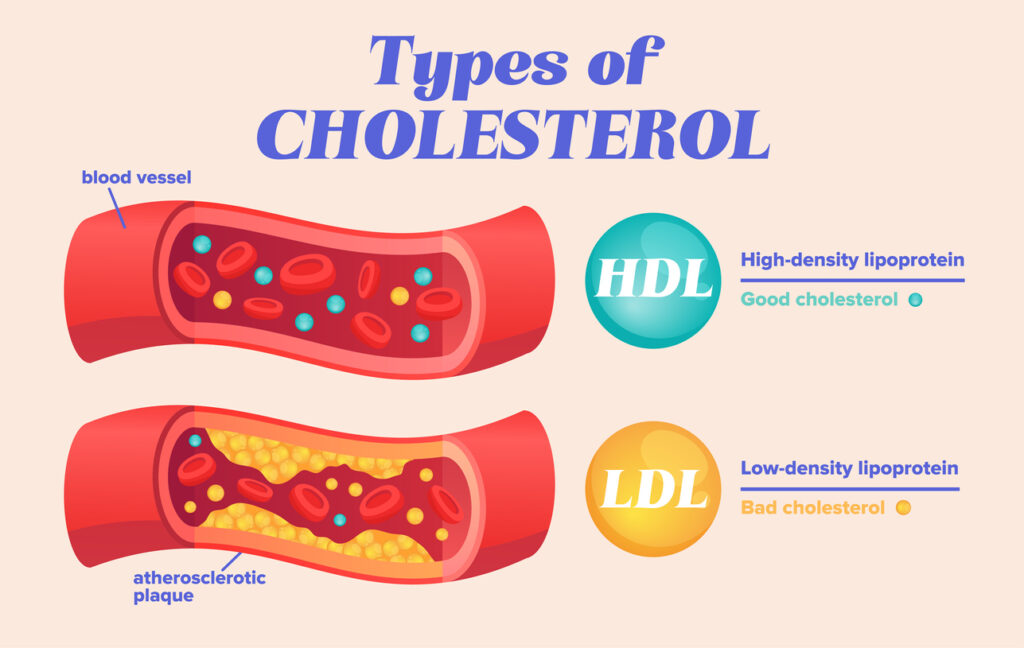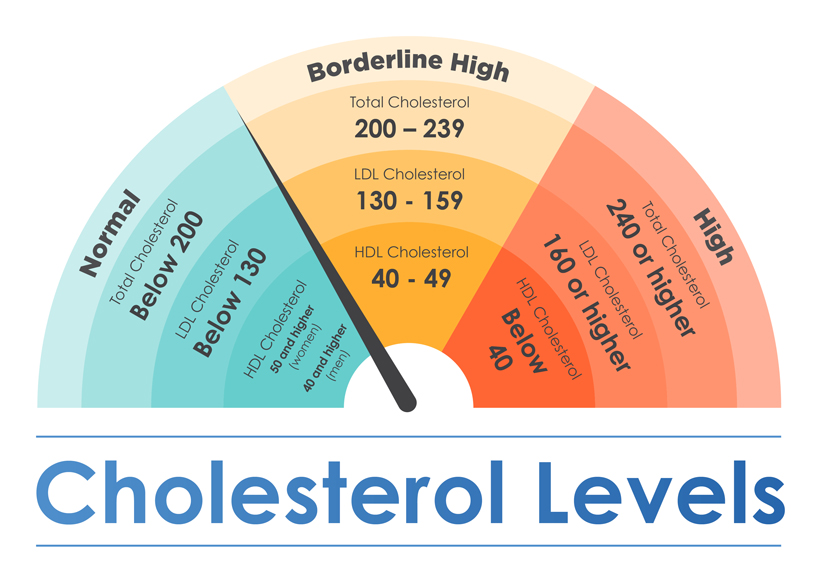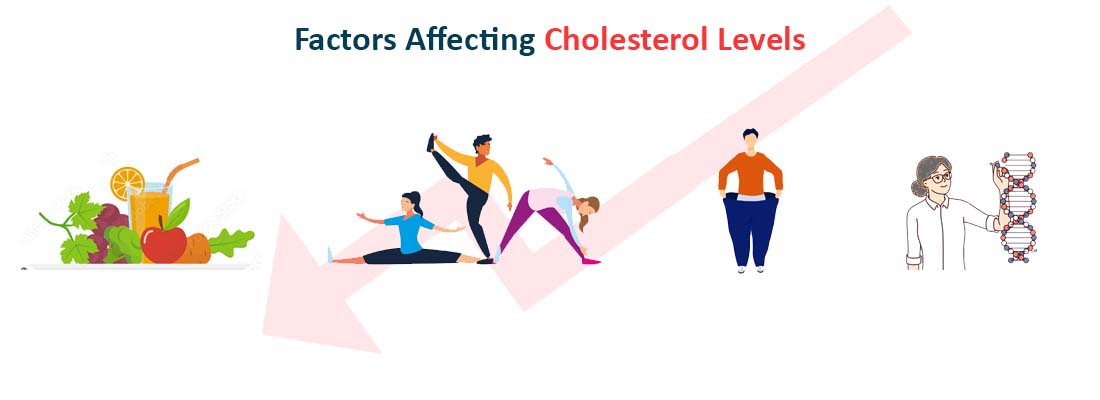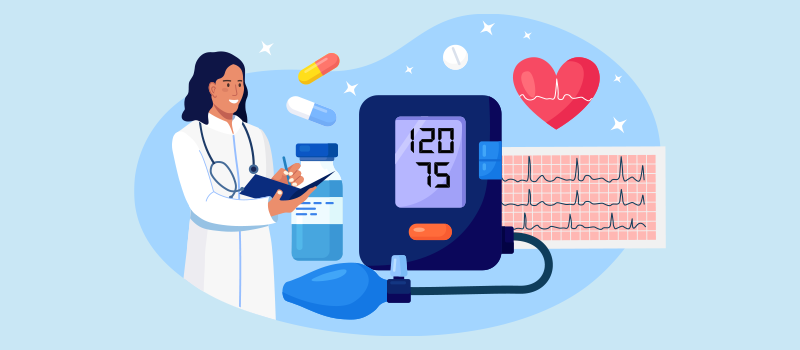Understanding Your Cholesterol: What the Numbers Really Mean
Cholesterol, a waxy substance found in your blood, plays a crucial role in building healthy cells. However, having high cholesterol can increase your risk of heart disease.
This blog is by a Cardiology Specialist at SLG Hospitals, Bachupally Who can help manage and treat high cholesterol through medication, lifestyle changes, and diet
What is Cholesterol?
Cholesterol is a lipid, a type of fat that is essential for your body’s normal functioning. It is produced by the liver and is also found in certain foods. Cholesterol is vital for producing hormones, vitamin D, and substances that help digest foods.
Types of Cholesterol

There are two main types of cholesterol:
– Low-Density Lipoprotein (LDL) Cholesterol: Often referred to as “bad” cholesterol, LDL can build up in the walls of your arteries, making them hard and narrow. High levels of LDL cholesterol increase the risk of heart disease and stroke.
– High-Density Lipoprotein (HDL) Cholesterol: Known as “good” cholesterol, HDL helps remove other forms of cholesterol from your bloodstream. Higher levels of HDL cholesterol are associated with a lower risk of heart disease.
Understanding Cholesterol Numbers

When you get your cholesterol checked, your doctor will measure several components:
– Total Cholesterol: This number represents the total amount of cholesterol in your blood, including LDL and HDL.
– LDL Cholesterol: This number should be low. The lower it is, the better for your heart health.
– HDL Cholesterol: This number should be high. Higher levels are better for reducing heart disease risk.
– Triglycerides: Another type of fat in your blood, high levels of triglycerides can increase your risk of heart disease.
Ideal Cholesterol Levels

The American Heart Association provides the following guidelines for cholesterol levels:
– Total Cholesterol: Less than 200 mg/dL is desirable. 200-239 mg/dL is borderline high, and 240 mg/dL and above is high.
– LDL Cholesterol: Less than 100 mg/dL is optimal. 100-129 mg/dL is near optimal, 130-159 mg/dL is borderline high, 160-189 mg/dL is high, and 190 mg/dL and above is very high.
– HDL Cholesterol: 60 mg/dL and above is considered protective against heart disease. Less than 40 mg/dL for men and less than 50 mg/dL for women is a major risk factor for heart disease.
– Triglycerides: Less than 150 mg/dL is normal. 150-199 mg/dL is borderline high, 200-499 mg/dL is high, and 500 mg/dL and above is very high.
Why do Cholesterol Levels Matter?
High cholesterol levels can lead to the development of atherosclerosis, a condition where plaque builds up in the walls of arteries, narrowing them and making it harder for blood to flow through. This can lead to serious health problems, including:
– Coronary Artery Disease (CAD): Reduced blood flow to the heart can cause chest pain (angina) and heart attacks.
– Stroke: Reduced blood flow to the brain can cause a stroke.
– Peripheral Artery Disease (PAD): Reduced blood flow to the legs and feet can cause pain and increase the risk of infection.
Factors Affecting Cholesterol Levels

Several factors can influence your cholesterol levels:
– Diet: Foods high in saturated fats, trans fats, and cholesterol can raise LDL levels.
– Weight: Being overweight or obese can increase your LDL and lower your HDL levels.
– Physical Activity: Lack of physical activity can increase LDL and decrease HDL levels.
– Age and Gender: Cholesterol levels naturally rise as you age. Before menopause, women tend to have lower total cholesterol levels than men of the same age. After menopause, women’s LDL levels tend to rise.
– Genetics: High cholesterol can run in families.
– Medical Conditions: Conditions such as diabetes, hypothyroidism, and kidney disease can affect cholesterol levels.
– Medications: Certain medications can affect cholesterol levels.
How to Manage Your Cholesterol?

Managing your cholesterol involves lifestyle changes and, in some cases, medication.
Lifestyle Changes
– Healthy Diet: Adopt a heart-healthy diet that includes plenty of fruits, vegetables, whole grains, and lean proteins. Reduce your intake of saturated fats, trans fats, and cholesterol. Foods rich in omega-3 fatty acids, such as salmon, flaxseeds, and walnuts, can help lower LDL cholesterol.
– Physical Activity: Aim for at least 150 minutes of moderate-intensity exercise or 75 minutes of vigorous-intensity exercise each week. Activities such as brisk walking, swimming, and cycling can help improve your cholesterol levels.
– Weight Management: Losing even a small amount of weight can help lower your LDL cholesterol and triglyceride levels and raise your HDL cholesterol.
– Quit Smoking: Quitting smoking can improve your HDL cholesterol level and benefit your heart health overall.
– Limit Alcohol Intake: Drinking alcohol in moderation can help improve HDL cholesterol levels, but excessive drinking can lead to high triglycerides and other health problems.
Medications

If lifestyle changes aren’t enough to lower your cholesterol levels, your doctor may prescribe medications. Common types of cholesterol-lowering medications include:
– Statins: These drugs help lower LDL cholesterol by reducing the amount of cholesterol your liver produces.
– Bile Acid Sequestrants: These drugs help reduce LDL cholesterol by binding to bile acids, which your body needs to digest fats.
– Cholesterol Absorption Inhibitors: These drugs help lower LDL cholesterol by reducing the amount of cholesterol your body absorbs from food.
– PCSK9 Inhibitors: These newer drugs help lower LDL cholesterol by enhancing the liver’s ability to remove LDL cholesterol from the blood.
Regular Monitoring
Regular cholesterol testing is crucial for managing your cholesterol levels effectively. Your doctor will recommend how often you should get your cholesterol checked based on your age, risk factors, and overall health.
Understanding your cholesterol numbers is essential for maintaining heart health and reducing your risk of heart disease and stroke.
By adopting a heart-healthy lifestyle, monitoring your cholesterol levels regularly, and working with your healthcare provider, you can take control of your cholesterol and protect your heart health. Always consult with your healthcare provider before making any significant changes to your diet, exercise routine, or medication regimen.
Cholesterol management is a lifelong commitment. Stay informed, make healthy choices, and seek regular medical advice to keep your cholesterol levels in check and your heart in good shape.















